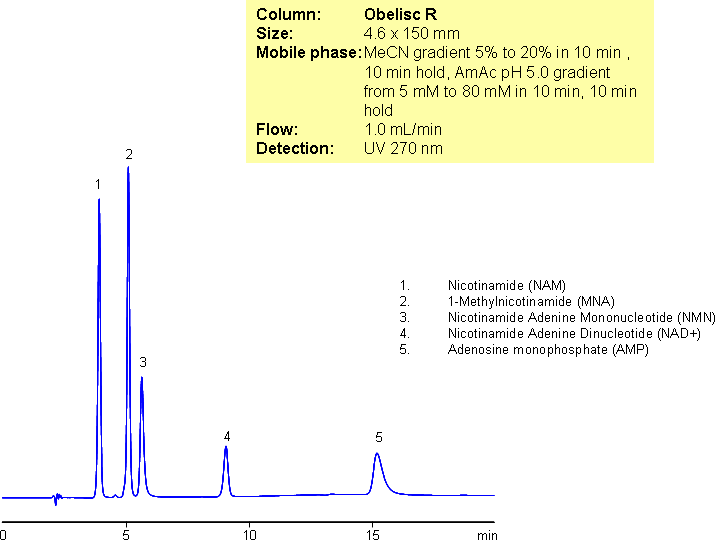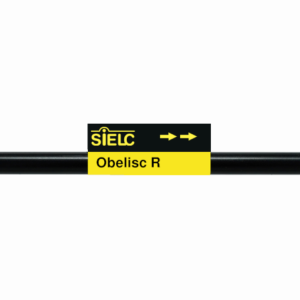| CAS Number | 1094-61-7 |
|---|---|
| Molecular Formula | C11H15N2O8P |
| Molecular Weight | 334.22 |
| InChI Key | YYNOOWWEYJELSF-SEMCEJNYSA-N |
| Synonyms |
|
Applications:
Separation of Nicotinamide and Related Substances
May 11, 2015

A complex mixture of nicotinamide and related impurities was separated on Obelisc R mixed-mode column. Nicotinamide, methylnicotinamide, nicotinamide adenine mononucleotide, nicotinamide adenine dinucleotide, and adenosine monophosphate were baseline resolved in a 15 minute long method. This mixed-mode approach can be used for analysis of other nucleotides. Obelisc R trimodal column separates this complex mixture based on reversed-phase, cation-exchange and anion-exchange mechanisms. Retention is controlled by amount of ACN, buffer concentration and buffer pH. Additional selectivity can be gained by exploring various buffers within the same pH
Application Column
Obelisc R
SIELC has developed the Obelisc™ columns, which are mixed-mode and utilize Liquid Separation Cell technology (LiSC™). These cost-effective columns are the first of their kind to be commercially available and can replace multiple HPLC columns, including reversed-phase (RP), AQ-type reversed-phase, polar-embedded group RP columns, normal-phase, cation-exchange, anion-exchange, ion-exclusion, and HILIC (Hydrophilic Interaction Liquid Chromatography) columns. By controlling just three orthogonal method parameters - buffer concentration, buffer pH, and organic modifier concentration - users can adjust the column properties with pinpoint precision to separate complex mixtures.
Select optionsAdenosine Monophosphate
Nicotinamide
Nicotinamide Adenine Dinucleotide (NAD)
Nicotinamide Adenine Mononucleotide
UV Detection



